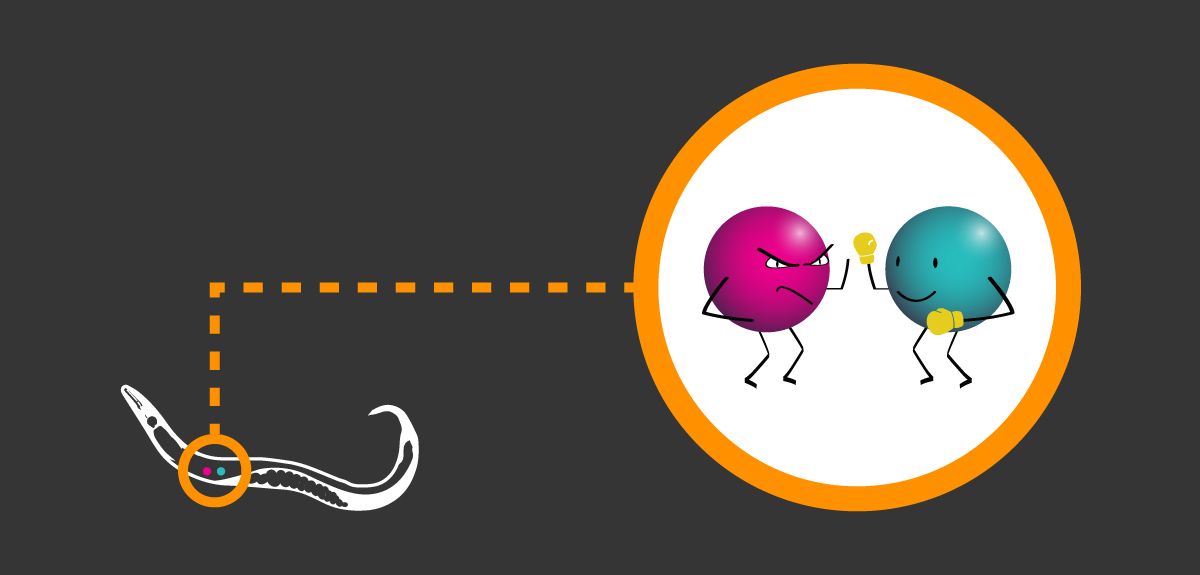
Image credit: Dan Guy
'Good bacteria' make diseases less deadly
In a new paper published in the journal Nature Communications, Oxford DPhil student Suzanne Ford from the Department of Zoology shows how the use of ‘good bacteria’ – or defensive microbes – could help fight diseases.
Using a microscopic worm infected both with a host-protective microbe and a harmful pathogen, the study demonstrates that the presence of a defensive microbe can force a pathogen to become less virulent.
Defensive microbes can also ‘steal’ vital proteins from pathogens to make themselves stronger, causing the pathogens to evolve to produce fewer such proteins. This, in turn, makes the defensive microbes weaker – but enough damage has already been done to the pathogen to stifle its future growth and virulence.
In a video produced by fellow Oxford DPhil student Sally Le Page for her ‘Shed Science’ YouTube series, Suzanne explains how, in the era of antibiotic resistance, alternative strategies for disease control are of the utmost importance.